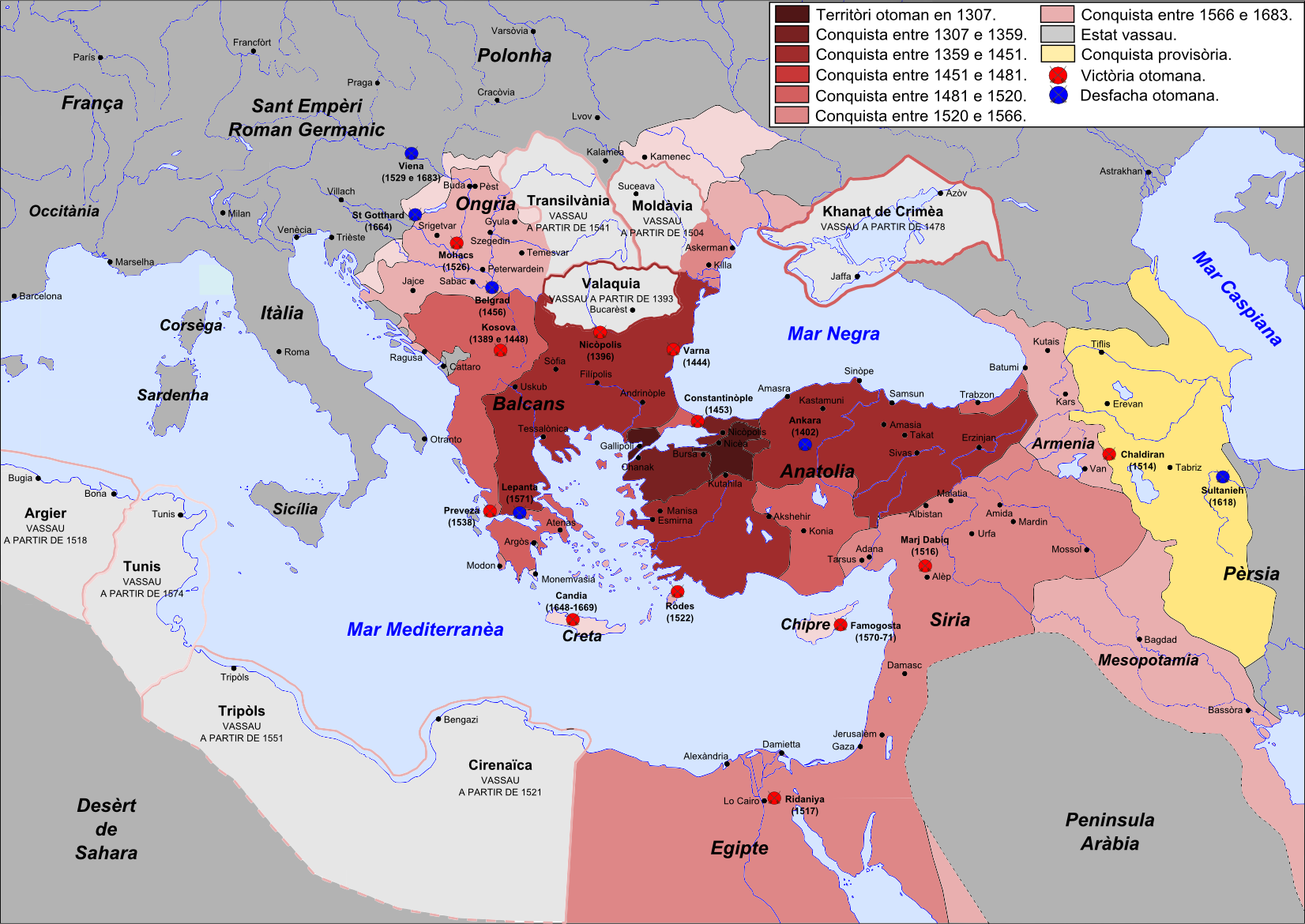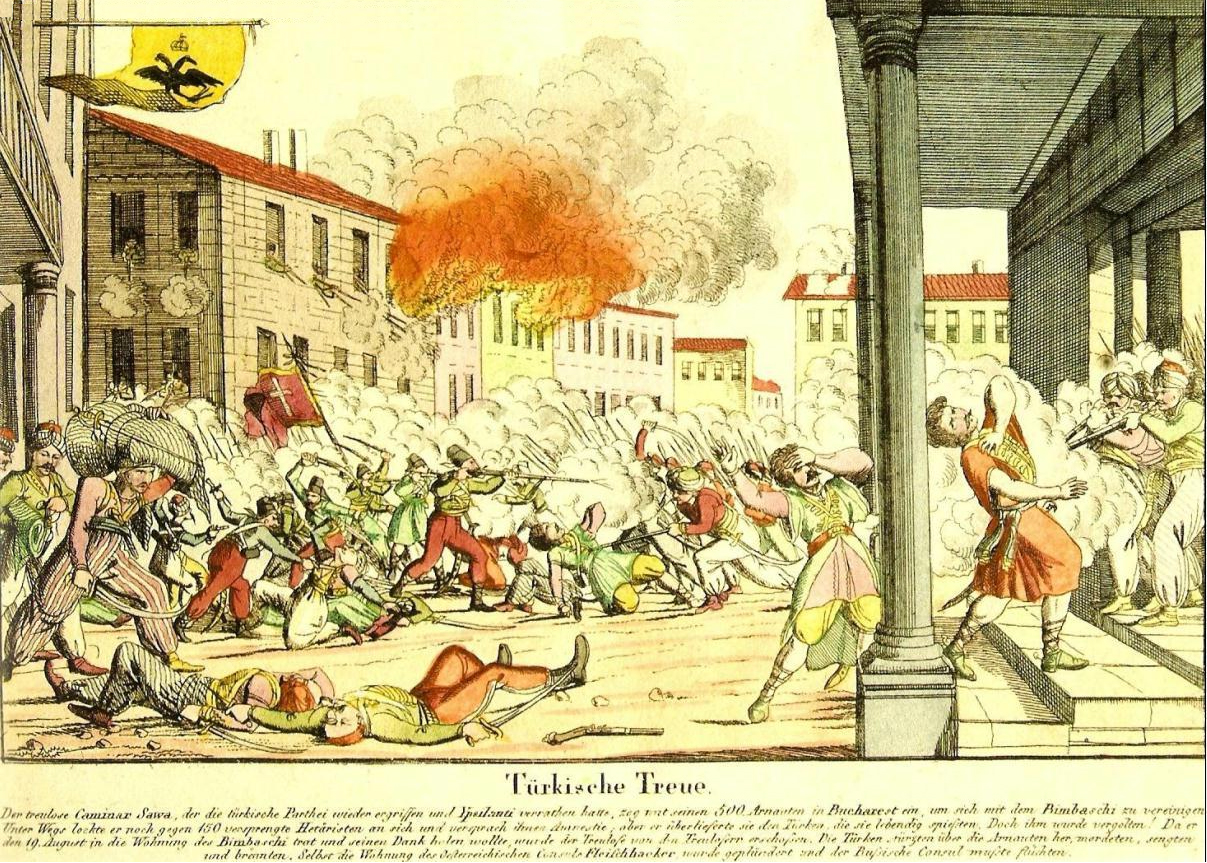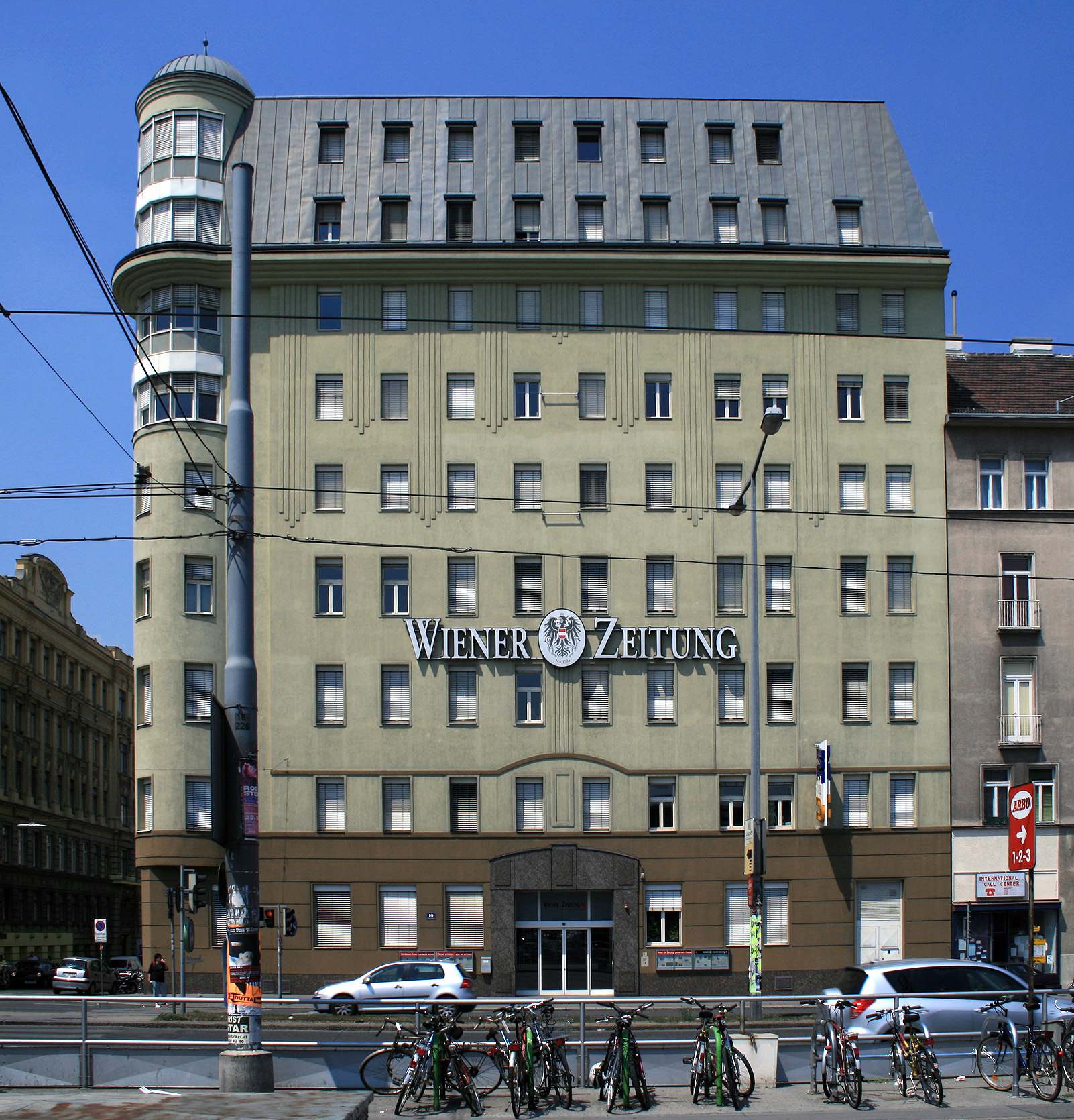|
Hermes O Logios
''Hermes o Logios'', also known as ''Logios Ermis'' ( el, , "Hermes the Scholar") was a Greek periodical printed in Vienna, Austria, from 1811 to 1821. It is regarded as the most significant and longest running periodical of the period prior to the outbreak of the Greek War of Independence, containing contributions by key scholars and intellectuals. ''Hermes o Logios'' aimed at creating intellectual contacts between the Greek communities of the Ottoman Empire and the Diaspora in Western Europe, as well as the preparing national awakening of the Greek people. The periodical started its circulation after a proposal by Adamantios Korais, a leading figure of the modern Greek Enlightenment, who had stressed the need of a printed medium, written in vernacular Greek. This initiative was supported by the ''Philological Society'' in Bucharest, an organization consisting of Greek intellectuals. ''Hermes o Logios'' reflected the style of other European periodicals of early 19th century an ... [...More Info...] [...Related Items...] OR: [Wikipedia] [Google] [Baidu] |
Anthimos Gazis
Anthimos Gazis or Gazes ( gr, Ἄνθιμος Γαζῆς, born ''Anastasios Gazalis'', ; 1758 24 June 1828) was a Greek scholar, revolutionary and politician. He was born in Milies (Thessaly) in Ottoman Greece in 1758 into a family of modest means. In 1774 he became a deacon; his career later brought him to Constantinople where he was promoted to archimandrite. He left for Vienna in 1789, where he preached at the Church of Saint George, while simultaneously pursuing his academic interests. His efforts to promote education in Greece through the ''Filomousos Eteria'', translation work and contributions to the first Greek philological periodical, ''Hermes o Logios'', played a significant role in the development of the Greek Enlightenment. In 1817, he joined the ''Filiki Eteria'' secret society and returned to his homeland, recruiting others in preparation for an anti–Ottoman revolt. In 1821, with the start of the Greek War of Independence against the Ottoman Empire he led the Gree ... [...More Info...] [...Related Items...] OR: [Wikipedia] [Google] [Baidu] |
Ottoman Greece
Most of the areas which today are within modern Greece's borders were at some point in the past part of the Ottoman Empire. This period of Ottoman rule in Greece, lasting from the mid-15th century until the successful Greek War of Independence that broke out in 1821 and the proclamation of the First Hellenic Republic in 1822 (preceded by the creation of the autonomous Septinsular Republic in 1800), is known in Greek as ''Tourkokratia'' ( el, Τουρκοκρατία, "Turkish rule"; en, "Turkocracy"). Some regions, however, like the Ionian islands, various temporary Venetian possessions of the Stato da Mar, or Mani peninsula in Peloponnese did not become part of the Ottoman administration, although the latter was under Ottoman suzerainty. The Eastern Roman Empire, the remnant of the ancient Roman Empire which ruled most of the Greek-speaking world for over 1100 years, had been fatally weakened since the sacking of Constantinople by the Latin Crusaders in 1204. The Ottoman ... [...More Info...] [...Related Items...] OR: [Wikipedia] [Google] [Baidu] |
Danubian Principalities
The Danubian Principalities ( ro, Principatele Dunărene, sr, Дунавске кнежевине, translit=Dunavske kneževine) was a conventional name given to the Principalities of Moldavia and Wallachia, which emerged in the early 14th century. The term was coined in the Habsburg monarchy after the Treaty of Küçük Kaynarca (1774) in order to designate an area on the lower Danube with a common geopolitical situation.Heppner Harald, ''Österreich und die Donaufürstentümer 1774–1812. Ein Beitrag zur habsburgischen Südosteuropapolitik'', Habilitationsschrift, Graz, 1984, p.8-9 The term was largely used then by foreign political circles and public opinion until the union of the two principalities in 1859. Alongside Transylvania, the United Principalities of Moldavia and Wallachia became the basis for the Kingdom of Romania, and by extension the modern nation-state of Romania. In a wider context, the concept may also apply to the Principality of Serbia as one of ''The Pr ... [...More Info...] [...Related Items...] OR: [Wikipedia] [Google] [Baidu] |
Tudor Vladimirescu
Tudor Vladimirescu (; c. 1780 – ) was a Romanian revolutionary hero, the leader of the Wallachian uprising of 1821 and of the Pandur militia. He is also known as Tudor din Vladimiri (''Tudor from Vladimiri'') or, occasionally, as Domnul Tudor (''Voivode Tudor''). Background Tudor was born in Vladimiri, Gorj County (in the region of Oltenia) in a family of landed peasants ('' mazili''); his birth year is usually given as 1780, but this is still debated. At the age of 12, he was sent to Craiova, in service to boyar Ioan Glogoveanu, where he would later learn rhetoric, grammar and the Greek language. He became administrator of the boyar's estate and, in 1806, was named '' vătaf'' (leader of the local militias) at Cloșani. Tudor's experience as a servant made him familiar with customs, habits and objectives of landowners; this insight helped him walk the fine line between conflicting interests of boyars and peasants in the first months of the uprising against the Phanariotes. ... [...More Info...] [...Related Items...] OR: [Wikipedia] [Google] [Baidu] |
Alexander Ypsilantis (1792–1828)
Alexandros Ypsilantis ( el, Αλέξανδρος Υψηλάντης, Aléxandros Ypsilántis, ; ro, Alexandru Ipsilanti; russian: Александр Константинович Ипсиланти, Aleksandr Konstantinovich Ipsilanti; 12 December 179231 January 1828) was a Greek nationalist politician who was member of a prominent Phanariot Greek family, a prince of the Danubian Principalities, a senior officer of the Imperial Russian cavalry during the Napoleonic Wars, and a leader of the Filiki Etaireia, a secret organization that coordinated the beginning of the Greek War of Independence against the Ottoman Empire. Early life The Ypsilantis family hailed from the Pontic Greek population of Trabzon. He was born on 12 December 1792 in Constantinople, the capital of the Ottoman Empire, as the eldest of five brothers (the others being Demetrios, Nicholas, Georgios and Grigorios). His father Constantine Ypsilantis and grandfather Alexander were active in the Ottoman administra ... [...More Info...] [...Related Items...] OR: [Wikipedia] [Google] [Baidu] |
Wiener Zeitung
''Wiener Zeitung'' is an Austrian newspaper. It is one of the oldest, still published newspapers in the world. It is the official publication used by the Government of the Republic of Austria for legally-required announcements, such as company registrations,§ 10 (1) UGB, dRGBl. S 219/1897 as amended by BGBl. I Nr. 63/2019 and was also the official publishing body for laws and executive orders until 2004.Bundesgesetz über das Bundesgesetzblatt 2004, BGBl. I Nr. 100/2003 As of 2002, ''Wiener Zeitung'' was among the four Austrian newspapers of record beside the right-liberal ''Die Presse'', the left-liberal ''Der Standard'' and the Christian-liberal and conservative ''Salzburger Nachrichten''. History and profile The newspaper, founded in 1703 under the name ''Wiennerisches Diarium'', was considered the official mouthpiece of the Imperial Court due to its being supplied information directly and exclusively by the Court. The paper was published bi-weekly, usually running around e ... [...More Info...] [...Related Items...] OR: [Wikipedia] [Google] [Baidu] |
Michael Soutzos
Michael Soutzos (, , Constantinople, 1778 or 1784 – Athens, 12 June 1864), was a member of the Soutzos family of Phanariotes, he was the grandson of Michael Drakos Soutzos; he was in turn a Prince of Moldavia, between 12 June 1819 and 29 March 1821. He was initiated into Filiki Eteria, he supported the Greek revolution in Moldavia and Wallachia and after the creation of the Greek state, he served as ambassador of the country abroad. Biography He was born in Istanbul in 1778 or according to other sources in 1784.Spyridon M. Theotokis, Αλληλογραφία Ι. Α. Καποδίστρια-Ι. Γ. Εϋνάρδου 1826–1831, Βιβλιοπωλείον Ι. Ν. Σιδέρη, Athens, 1929, p. 458. [...More Info...] [...Related Items...] OR: [Wikipedia] [Google] [Baidu] |
Scarlat Callimachi (hospodar)
Scarlat Callimachi (1773 in Istanbul – 12 December 1821, in Bolu) was Grand Dragoman of the Sublime Porte 1801–1806, Prince of Moldavia between August 24, 1806 – October 26, 1806, August 4, 1807 – June 13, 1810, September 17, 1812 – June 1819 and Prince of Wallachia between February 1821 – June 1821. A member of the Callimachi family, he was the son of Alexandru Callimachi and Ruxandra Ghica, and married Smaragda Mavrogheni. In 1810, during the Russo-Turkish War, he was imprisoned by the Russians, and taken to Kharkiv. He regained the Moldovan throne in 1812. Scarlat Callimachi adopted new laws and cut taxes for the boyars. He took measures against the plague, maintained upkeep of wood paved streets, supported Gheorghe Asachi's Romanian-language movement, and introduced potatoes to Moldavia. In 1819 Scarlat Callimachi was taken to Istanbul to be executed after being suspected of collaborating with the Russians. He managed to have the sentence cancelled and in 1821 w ... [...More Info...] [...Related Items...] OR: [Wikipedia] [Google] [Baidu] |
Prince Of Moldavia
This is a list of rulers of Moldavia, from the first mention of the medieval polity east of the Carpathians and until its disestablishment in 1862, when it united with Wallachia, the other Danubian Principality, to form the modern-day state of Romania. Notes Dynastic rule is hard to ascribe, given the loose traditional definition of the ruling family (on principle, princes were chosen from any branch, including a previous ruler's bastard sons – being defined as ''os de domn'' – "of domn marrow", or as having ''hereghie'' – " heredity" (from the Latin ''hereditas''); the institutions charged with the election, dominated by the boyars, had fluctuating degrees of influence). The system itself was challenged by usurpers, and became obsolete with the Phanariote epoch, when rulers were appointed by the Ottoman Sultans. Between 1821 and 1862, various systems combining election and appointment were put in practice. Moldavian rulers, like Wallachian and other Eastern European rul ... [...More Info...] [...Related Items...] OR: [Wikipedia] [Google] [Baidu] |
Neophytos Doukas
Neophytos Doukas or Dukas ( el, Νεόφυτος Δούκας; 1760 – 1 January 1845) was a Greek priest and scholar, author of many books and translations from ancient Greek works, and one of the most important personalities of the modern Greek Enlightenment (''Diafotismos'') during the Ottoman occupation of Greece. His contributions to Greek education have been neglected because of the traditional ideas he advocated concerning the Greek language question (being an "archaist", supported the use of classical Greek over Katharevousa uristic Greekand Dimotiki). Life Doukas was born in the village of Ano Soudena, in the mountainous Zagori region of Epirus, northwestern Greece. He has been described as of Greek or Aromanian descent. Nevertheless, he held negative views about Aromanians' culture and language, while he espoused notoriously pro-Greek views and he self-identified strictly as Greek. In one of the works that he would publish later in his life, Doukas called Aromanian a ... [...More Info...] [...Related Items...] OR: [Wikipedia] [Google] [Baidu] |
Alexandros Vasileiou
Alexandros Vasileiou ( el, Αλέξανδρος Βασιλείου, 1760–1818) was a Greek merchant and scholar, one of the representatives of the modern Greek Enlightenment. He was born in Gjirokastër, Ottoman Empire (today's Albania). Vasileiou was one of many Greek merchants in the 18th-19th centuries that were involved in the fields of education and literature. A. Vasileiou played an essential role in the Greek Enlightenment movement. His contact with Adamantios Korais, a major figure of Greek literature at that time, was of unique importance for him, while he lived in Paris. Correspondence between the two men was continuous. A. Vasileiou adopted the ideas of Korais to the Greek language question and confronted the conservative scholar Neofitos Doukas. He was the author of a number of articles in the ''Hermes o Logios'' magazine (a Greek literary magazine, published in Vienna). At the same time he supported financially the publication of several issues of Logios Ermis an ... [...More Info...] [...Related Items...] OR: [Wikipedia] [Google] [Baidu] |
Russo-Turkish War (1806–1812)
The Russo-Turkish War (1806–1812) between the Russian Empire and the Ottoman Empire was one of the Russo-Ottoman Wars. Russia prevailed, but both sides wanted peace as they feared Napoleon's moves to the east. Background The war broke out against the background of the Napoleonic Wars. In 1806, Sultan Selim III, encouraged by the Russian defeat at Austerlitz and advised by the French Empire, deposed the pro-Russian Constantine Ypsilantis as Hospodar of the Principality of Wallachia and Alexander Mourousis as Hospodar of Moldavia, both Ottoman vassal states. Simultaneously, the French Empire occupied Dalmatia and threatened to penetrate the Danubian principalities at any time. In order to safeguard the Russian border against a possible French attack, a 40,000-strong Russian contingent advanced into Moldavia and Wallachia. The Sultan reacted by blocking the Dardanelles to Russian ships and declared war on Russia. Early hostilities Initially, Emperor Alexander I was relu ... [...More Info...] [...Related Items...] OR: [Wikipedia] [Google] [Baidu] |






